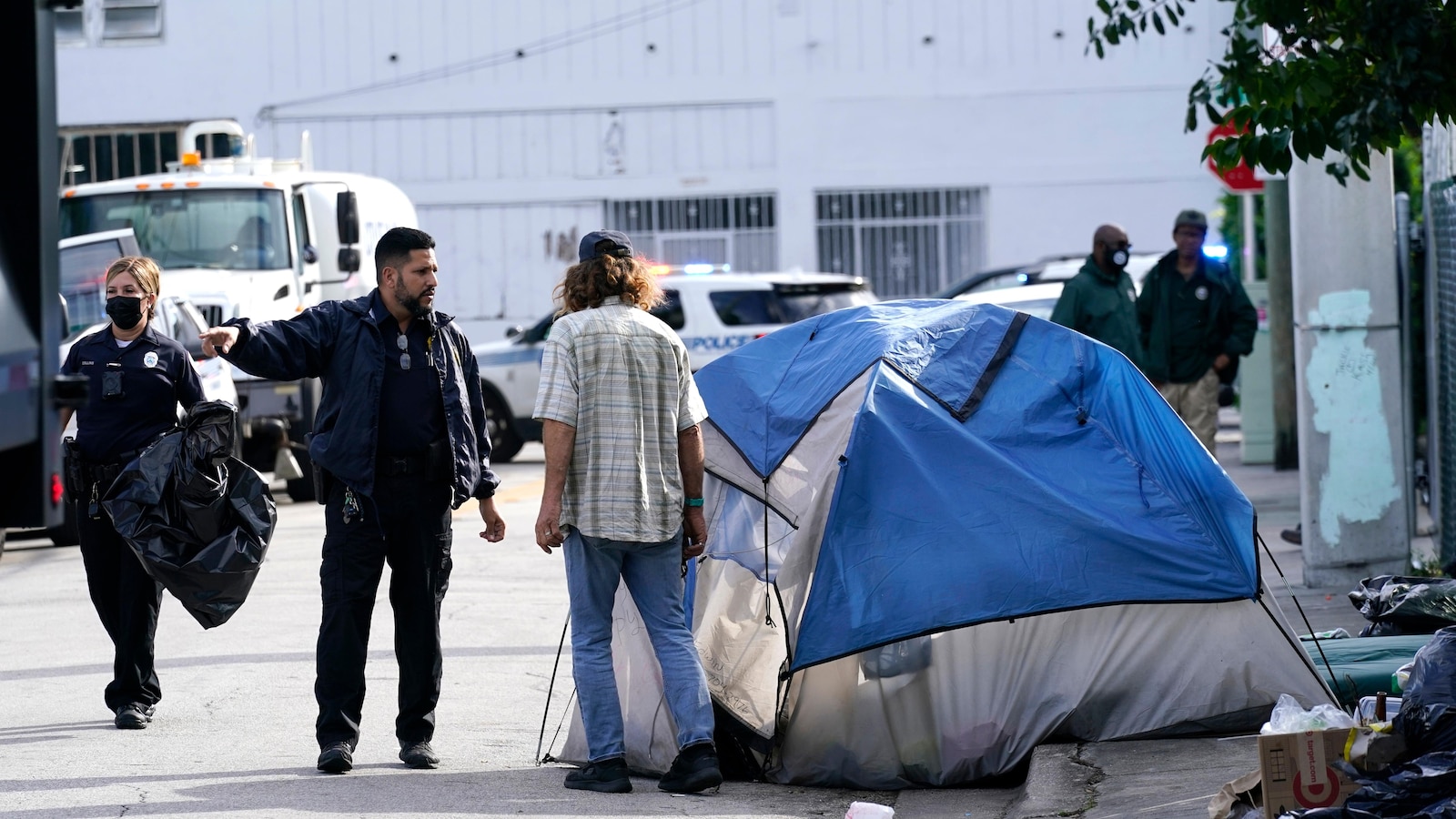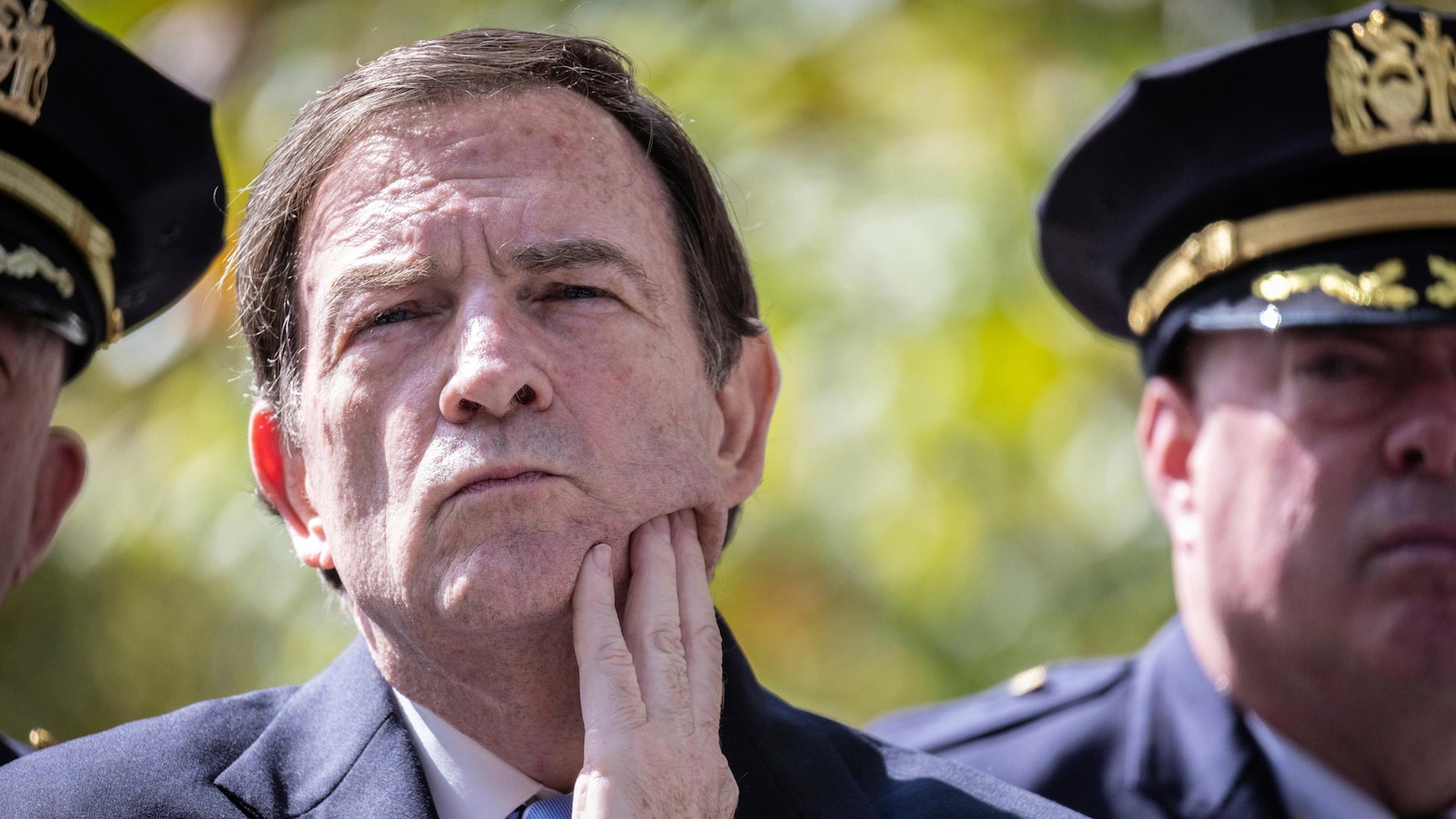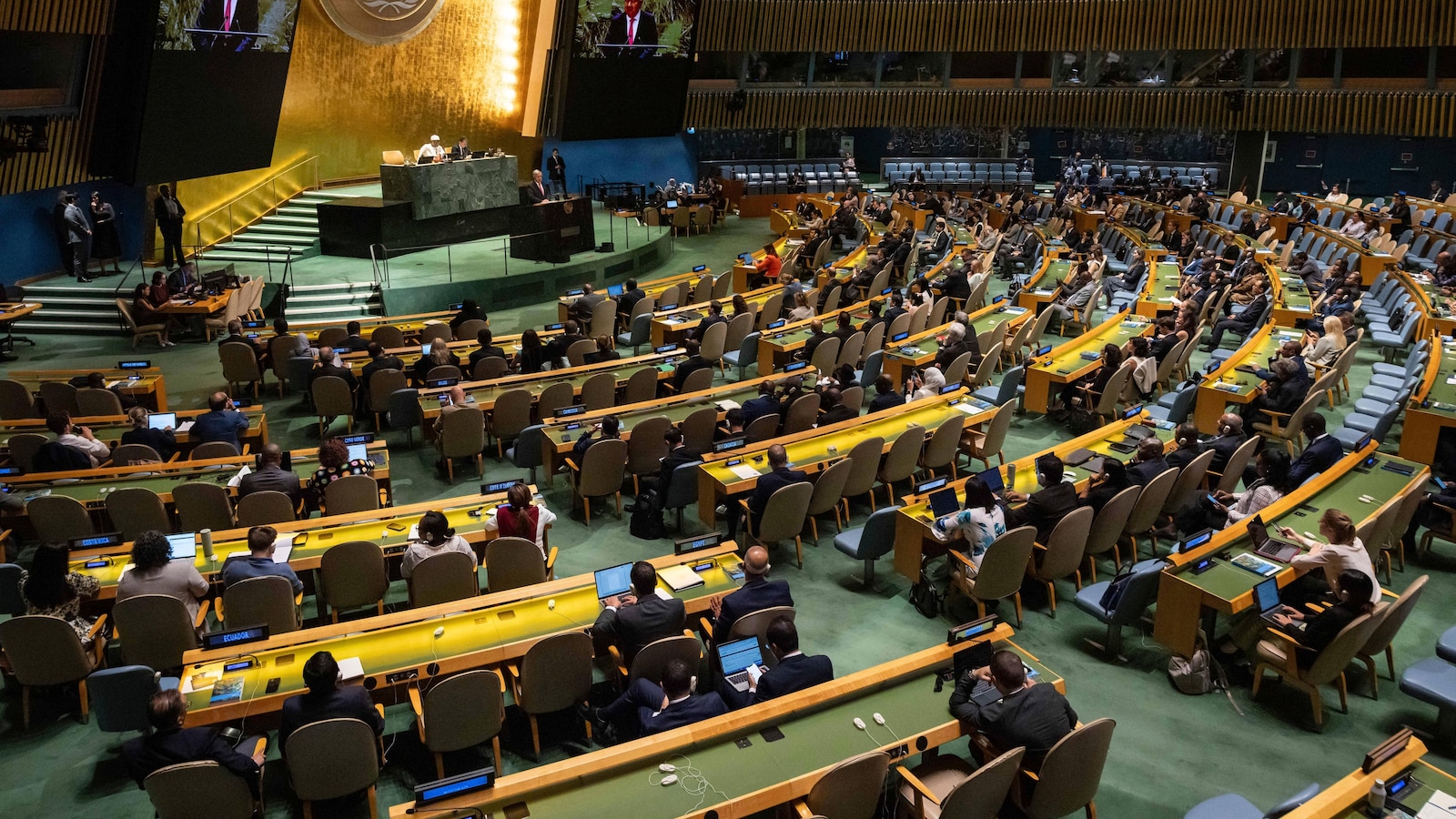
Florida’s homeless will be banned from sleeping on sidewalks and in parks and other public spaces under a law signed Wednesday by Republican Gov. Ron DeSantis. It also promises the homeless greater access to services for issues such as substance abuse and mental health problems.
The state Department of Children and Families would oversee local governments that set up designated areas for the homeless to camp for up to a year under the new law, which takes effect Oct. 1. Anyone using those encampments would be prohibited from using alcohol or illegal drugs, with sanitation and security to be provided.
The encampments would be created if local homeless shelters reach maximum capacity, according a news release from the governor’s office. The law requires regional entities to provide necessary behavioral treatment access as a condition of a county or city creating an encampment.
Allowing the homeless to camp in public spaces affects the local quality of life, can be a nuisance for businesses and makes it more difficult to deliver them needed services because they’re scattered, DeSantis and other supporters of the measure said at a news conference in Miami Beach.
“I think this is absolutely the right balance to strike,” DeSantis said. “We want to make sure we put public safety above all else.”
During the Legislature’s latest session, Florida’s homeless population was estimated to be about 30,700 in 2023. That’s a fraction of the homeless populations in many large U.S. cities, but the law’s sponsors said it could worsen because of Florida’s rapid population growth.
“This bill will not eliminate homelessness. But it is a start,” said Republican state Rep. Sam Garrison. “And it states clearly that in Florida, our public spaces are worth fighting for.”
Opponents of the law say it is meant to round up the homeless and hide them from public view.
“This bill does not and it will not address the more pressing and root cause of homelessness,” said Democratic state Sen. Shevrin Jones during a debate this year. “We are literally reshuffling the visibility of unhoused individuals with no exit strategy for people who are experiencing homelessness.”
DeSantis, however, said the new law is a unique approach in pledging to provide the services that homeless people often need.
“This is going to require that the services are there to help people get back on their feet,” the governor said. “I think it’s important that we maintain the quality of life for the citizens of Florida.”
Beginning in January 2025, the law will allow residents, local business owners and the state attorney general to file a lawsuit to stop any city or county from allowing the homeless to camp or sleep on public property.
In a controversial move, a new law backed by the governor of [state] has been passed, prohibiting homeless individuals from sleeping in public spaces. This law has sparked heated debates and divided opinions among lawmakers, advocates for the homeless, and the general public.
The law, officially known as [name of law], aims to address the issue of homelessness in [state] by discouraging individuals from sleeping in public areas such as parks, sidewalks, and doorways. Supporters of the law argue that it is necessary to maintain public order and safety, as well as to encourage homeless individuals to seek shelter and services provided by the government and non-profit organizations.
However, critics of the law argue that it unfairly targets and criminalizes homeless individuals, who often have no other choice but to sleep in public spaces due to lack of affordable housing and shelter options. They argue that instead of addressing the root causes of homelessness, such as poverty and lack of access to mental health services, the law simply pushes homeless individuals further into the margins of society.
Advocates for the homeless have also raised concerns about the potential for increased police harassment and discrimination against homeless individuals as a result of this law. They argue that criminalizing homelessness only serves to perpetuate the cycle of poverty and marginalization that many homeless individuals already face.
In response to these criticisms, the governor’s office has stated that the law is not meant to criminalize homelessness, but rather to encourage homeless individuals to seek help and support from government agencies and non-profit organizations. They have also emphasized that the law includes provisions for outreach and support services for homeless individuals who are affected by it.
Despite these assurances, many advocates for the homeless remain skeptical of the law and its potential impact on vulnerable populations. They continue to push for more comprehensive solutions to address homelessness, such as increasing affordable housing options, expanding mental health services, and providing more support for homeless individuals to transition out of homelessness.
As the debate over this governor-backed law continues to unfold, it is clear that addressing homelessness is a complex and multifaceted issue that requires a comprehensive and compassionate approach. While laws like this one may be well-intentioned, it is important for policymakers to consider the broader implications and unintended consequences of such measures on some of the most vulnerable members of our society.


